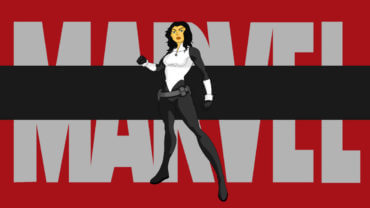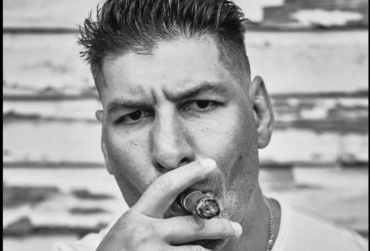Actor on The Calling & The Patient Weighs In On Orthodox Representation On Shows
Orthodox Judaism is most commonly seen on TV as something to run away from — with the main character often leaving the faith or it being poked fun at in some way. NBC’s streaming service Peacock is helping to break that mold with its new show, The Calling, which premiered earlier this month.
What’s groundbreaking about this show as well as FX’s series, The Patient, is that they feature a recurring Orthodox Jewish character. Menachem Silverstein is an actor on both shows — he appeared in one episode in each — and as an Orthodox Jew himself, can speak to the work being done honestly and accurately. “It’s nice that we’re finally seeing Orthodox Jewish characters,” he says, “and to an extent accurate Orthodox Jewish representation.”
Menachem is a Lubavitch Chasid who moved from Crown Heights to LA to become a TV writer. Primarily a comedian, he’s worked with a number of major productions, including Jimmy Kimmel Live, TBS Digital, and IFC Digital. He is also currently a regular at the Laugh Factory. Now, he’s breaking into the dramatic writing genre, as well as being often called upon to play Jewish roles in major productions.
Rabbi Menachem Hecht was the consultant for The Patient, and was hired by the showrunners due to their lack of familiarity with the nuances of Orthodox Judaism. There are multiple instances of scenes revolving around prayer, as well as trauma surrounding the Holocaust. While the central Jewish characters are in a very tense relationship — in reaction to the main character’s son becoming a baal teshuva (returnee to Judaism), along with his family — there is a progressing resolution between him and his parents. However, some of the depictions of the Orthodox Jews are slightly off, particularly the ones that paint the family as cultish.
Menachem points out that the portrayal of tensions between nonreligious grandparents and a newly-religious child with his own religious children does accurately depict an accurate strain in the families of baalei teshuva. He recounts how his parents became baalei teshuva, and how he remembers a scene eerily similar to one in the show: instead of the infamous ice cream scene, his grandmother bought boxed cake with a hechsher (kosher symbol) for the religious grandchildren, and served the rest something homemade.
However, he critiques the show on its choice to depict a negativity in regards to many people’s first exposure to Orthodox Judaism. “The show is from Steve Carrell — the dad’s — perspective,” he continues. “The son is a caricature: he doesn’t really have depth because you’re only seeing him through Steve Carrell’s lens, so he is just this annoying guy who found a cult,” by which he brings multiple examples of subtle yet very present negativity. Although having an Orthodox Jewish consultant is an amazing opportunity and not to be discounted, some of these issues might be further diminished — or at least dealt with in a more nuanced way — if there were Orthodox Jewish writers on the team as well.
Where The Patient most often leads into negative tension with its Orthodox Jewish character, the main character of The Calling offers a more positive approach. Menachem confesses to really liking The Calling — least of which because Jeff Wilbusch (the main character) is a friend — due to the presence of a “Normal, three-dimensional character. It’s a real person, with real feelings, who happens to be Jewish. Up until now, it’s just been that the only thing about them is the fact that they’re Orthodox or leaving Orthodoxy.” The casualness of the main character’s observance is appealing because it depicts the daily integration of observance, ritual, and philosophy in a mostly-natural, non-contrived or depth-minimizing way. Some of the representation isn’t even attached to the main character: Menachem says that one of his favorite — and even the most beautiful — moments of representation is that a doctor in a hospital scene is simply shown wearing a yarmulke without needing to explain or justify the presence of that yarmulke.
With stories of leaving the Orthodox Jewish world having taken up so much space in the media lately, it’s refreshing to see representation that is more positive and embracing of the quiet, day-to-day nuances of Jewish life. As we continue to work on better representation, we hope to see more strides being made on screen.
If you found this content meaningful and want to help further our mission through our Keter, Makom, and Tikun branches, please consider becoming a Change Maker today.







